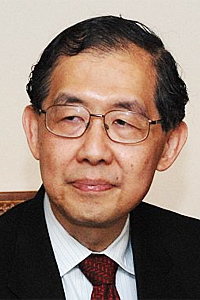Last year, we were saddened by the hazards related to dam failures in the Mekong River basin after one of the saddle dams on the Xe Pian-Xe Namnoy hydro-electric project in Laos collapsed and the large amounts of impounded water then gushed downstream, causing massive inundation and damage to property, crops, livestock, lost livelihoods and some human casualties. The cause of the dam disaster has been attributed to sub-standard construction and unusually high rainfall.
A year later, the situation in the Mekong basin is the complete opposite with extreme drought conditions and extraordinary low stream flows prevailing despite being in the supposed rainy season. What made matters worse is the reduction of the Mekong water release by about half during July 5-19 from the Jinhong hydropower station which is on the upper section of the Mekong River in China's Yunnan province, for "grid maintenance" purposes. The result was record-breaking low stream-flow conditions in many downstream locations especially in Thailand and Laos, with dry riverbeds and protruding rocks as well as deaths of aquatic life along the riverbanks observed for quite substantial stretches of the river. Some have even pointed the finger at the Xayaburi dam further down the river in Laos which was undergoing test runs of its hydropower generating system for also exacerbating the situation although there have been different opinions in this regard.
Whether this oscillating phenomenon is due to a changing climate, it goes to show the marked increase in the fluctuation or unpredictability in seasonal hydro-meteorological factors within just a year and in both cases the dire situations were further amplified by dam failures or operations in the river system itself. Just as I indicated a year ago when the only certainty was uncertainty, one must take extra care to err on the side of caution or build in more safety or contingency measures in any kind of operations which may have possible adverse environmental and/or socio-economic impacts. Unless it is an emergency, scheduling of water structures or equipment maintenance works may need to have certain flexibility built in to accommodate the changing rainfall and water flow conditions.
The Mekong River Commission (MRC), the inter-governmental organisation with Cambodia, Laos, Thailand and Vietnam as members and China and Myanmar as Dialogue Partners or observers, have been charged with overseeing the sustainable development of the Mekong River since 1995. It put out three statements recently in connection with the drought and streamflow matters in the river basin. In its first statement on July 3 announcing the notification received from China's Ministry of Water Resources on the reduction in water release from the Jinhong hydro-station as indicated earlier, it also gave the impression there was nothing to worry about as a result of this expected water fluctuation as "no major impact is expected" as stated in its headline.
It then reiterated this in the last sentence of the first paragraph by saying, "But with more rain forecast and the wet season already starting, no major worrying trend is anticipated". Towards the end of the statement, it further re-emphasised that "With the wet season already starting since early June, which is bringing the South Monsoon rainfall to the lower Mekong basin, the known water fluctuation at the Jinhong station should not pose any negative threat to the lower reaches of the Mekong". As we now know, how far off the mark such a prediction went. One perhaps saving grace is the MRC is hiring a water and climate monitoring specialist who would be responsible for analysis of flood and drought conditions as well as sediment and groundwater studies in the river basin and playing a lead role in hydro-meteorological data collection, analysis and maintenance.
In the second statement, issued on July 18 or two weeks later, as the realisation of the severity of the drought and streamflow situation in the lower Mekong basin takes hold, it corrected itself with the headline "Mekong water levels reach low record" and then went on to indicate the record-breaking drop in water levels observed in almost all water gauging stations along a significant stretch of the river. A third statement was issued a day later about the signing of the hydrological data sharing agreement between China and the MRC. This is just a renewal of an existing arrangement since 2002 whereby China shares the water-level and rainfall data, twice a day, from two of its hydrological stations -- one on the mainstream and another on a tributary of the upper Mekong section -- and just for five months of the year from June to October, or the rainy season, more for flood prediction and protection purposes. It would be more beneficial if China could share year-round data and from more measuring stations which would then provide a better picture of the rainfall and streamflow situation across the entire stretch of the upper section of the river that is within Chinese territory.
The latest Jinhong dam case of "turning off the tap" so to speak, although for ostensible maintenance purposes, is another timely reminder that the downstream riparian countries are often at the mercy of the upstream state on water management issues which is a rather disconcerting message unless there are appropriate reassurances to the contrary. A recent Thai PBS report, under the headline, "Eight Chinese dams block 40 billion cubic metres of water from Mekong River" while potentially true, is however not very helpful as it is too sensational, putting the upstream giant neighbour in an overly negative light and not conducive for more sensible negotiations. The truth is often somewhere in between, and this is the political space that downstream and upstream riparian states would need to work towards for some mutually agreed terms on how best to manage the common and shared water resource. Perhaps the several Mekong-related fora that will be convened this (coming) week in Bangkok could help serve as starting points for discussion leading to such ends.
Apichai Sunchindah is independent development specialist with interest on Mekong affairs.
